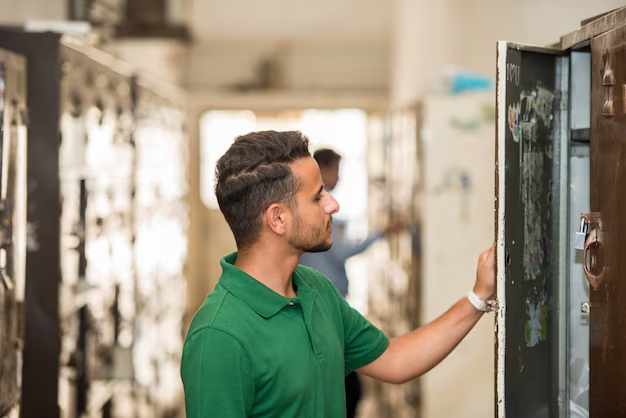How to Responsibly Get Rid of Your Old Refrigerator
Deciding what to do with an old refrigerator when it's time for an upgrade or replacement can be a bit challenging. Not only are these appliances heavy and bulky, but they also contain environmentally harmful materials that require special handling. Choosing the right disposal method is crucial both for legal compliance and environmental responsibility. In this guide, we'll explore several solutions for disposing of a refrigerator, providing guidance that balances practicality with eco-friendly considerations.
🍃 Why Proper Disposal Matters
Before jumping into disposal methods, it's important to understand why it's crucial to handle old refrigerators correctly.
Environmental Impact
Refrigerators contain refrigerants and other substances that can harm the environment if not properly managed. Substances like CFCs (chlorofluorocarbons) and HCFCs (hydrochlorofluorocarbons), when released into the atmosphere, contribute significantly to ozone depletion and global warming. Therefore, ensuring that these components are handled properly is essential for protecting both air quality and the broader ecosystem.
Legal Regulations
In many parts of the world, there are strict regulations governing the disposal of appliances like refrigerators. Failure to comply can result in significant fines. Many local laws require the removal of hazardous materials before processing, and in some cases, certified professionals must perform these actions. Being aware of and adhering to your local regulations is crucial when considering disposal.
♻️ Disposal Methods: Exploring Your Options
With the environmental and legal importance clear, let's look at various methods you can consider for disposing of your old refrigerator. Each method has its own pros and cons, depending on your priorities and local resources.
1. Municipal Waste Management Services
Many municipalities offer special waste collection programs for large appliances. Contacting your local waste management department can provide options for curbside pickup or drop-off at dedicated facilities.
- Pros: Convenient and often inexpensive. Ensures compliance with local regulations.
- Cons: May involve waiting for specific pickup days or hauling the appliance to a designated site.
2. Retailer Take-Back Programs
Some retailers provide disposal services when you purchase a new refrigerator. Often, they will either directly recycle the old unit or partner with recycling firms.
- Pros: Simplifies the disposal process, especially useful when buying a replacement.
- Cons: May incur additional costs unless included with a new purchase.
3. Recycling Centers
Dedicated recycling centers can correctly process refrigerators, ensuring safe removal of hazardous chemicals and recycling of metals and plastics.
- Pros: Environmentally friendly and supportive of local recycling initiatives.
- Cons: Requires transporting the appliance to the center unless pickup services are offered.
4. Donation and Resale
If your old refrigerator is still in working condition, consider donating or selling it. Many charities and second-hand stores accept functional appliances.
- Pros: Reduces waste and benefits others.
- Cons: Not applicable for non-functional units, requires ensuring the appliance meets donation criteria.
📜 Preparing Your Refrigerator for Disposal
Before disposal, whether through recycling, donation, or pickup services, some preparation steps will make the process smoother.
Cleaning and Unplugging
Start by cleaning out the refrigerator thoroughly, removing all food and shelves. Unplug it at least 24 hours in advance, allowing it to defrost if it's a freezer unit.
Securing Parts
Tape the doors shut and secure loose parts like drawers or shelves to prevent them from dislodging during transport. This step is important for safety and ease of handling.
Documenting Condition
If you're opting for donation or resale, document the working condition with photos or videos. This helps build trust with potential recipients or buyers.
🌱 Eco-Friendly Disposal Tips
For those prioritizing environmentally responsible disposal, here are a few additional strategies to consider:
Deconstruction for Parts
Refrigerators are composed of valuable metals and functional components that can be sold as parts or repurposed for other uses. If you possess the skills, consider deconstructing the appliance to extract copper, aluminum, or functioning motors.
Utilizing Certified Services
Opting for services that are certified by environmental agencies ensures your old fridge is handled by professionals who follow stringent environmental protocols.
- Key Takeaways for Eco-Friendly Disposal:
- Opt for services with eco-certifications.
- Explore part salvage for reusable components.
- Support programs that emphasize sustainability.
📋 Summary: Quick Tips for Refrigerator Disposal
Here's a concise summary of your disposal options and preparation tips:
- Municipal Waste Services: Convenient and compliant.
- Retailer Programs: Easy but sometimes costly.
- Recycling Centers: Best for environmental benefits.
- Donation: Great for operable units, supporting second-hand use.
- Preparation: Clean thoroughly, unplug, and secure parts.
- Eco-tips: Choose certified recyclers, consider repurposing parts.
🔍 Conclusion: Empowering Your Disposal Decisions
Disposing of an old refrigerator can be straightforward when equipped with the right knowledge. Understanding your environmental impact, legal obligations, and practical options ensures you're making a responsible choice. Whether opting for municipal services, recycling centers, or resale, each step you take contributes to a more sustainable planet. Empower yourself with these insights and choose the path that best aligns with your values and circumstances, ensuring your old refrigerator is disposed of with care and responsibility.

